NHRC, India & Sankala Foundation organises a day-long seminar on Ageing in India: Actionable Solutions in collaboration with NITI Aayog and Ministry of Social Justice & Empowerment
NHRC, India & Sankala Foundation organises a day-long seminar on Ageing in India: Actionable Solutions in collaboration with NITI Aayog and Ministry of Social Justice & Empowerment
The National Human Rights Commission (NHRC), India in partnership with Sankala Foundation organised a day-long seminar on Ageing in India: Actionable Solutions- Drawing insights from Global, Regional, and National Best Practices along with the active participation of NITI Aayog and Ministry of Social Justice & Empowerment, Government of India, in New Delhi. The seminar concluded with several important suggestions regarding the healthcare and nutrition needs of the elderly and their economic security, social inclusion, and quality of life.
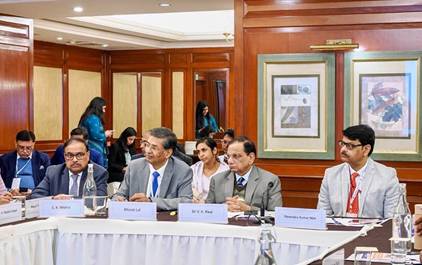
Addressing the inaugural session, NHRC, India Secretary General, Shri Bharat Lal spoke about the evolving role of old age homes and the necessity for change and improvement in their functioning. He emphasised that the Commission is working closely with civil society organisations, Special Rapporteurs and Monitors and human rights defenders to assess and advocate for elderly rights. He said that it is time to work on an action-oriented model including the best practices for replication for the overall welfare of the elderly population in the country. He urged for synergy among all organisations. He also said that an effort is on to develop a platform to provide elderly individuals with opportunities to engage and contribute to society, meaningfully.
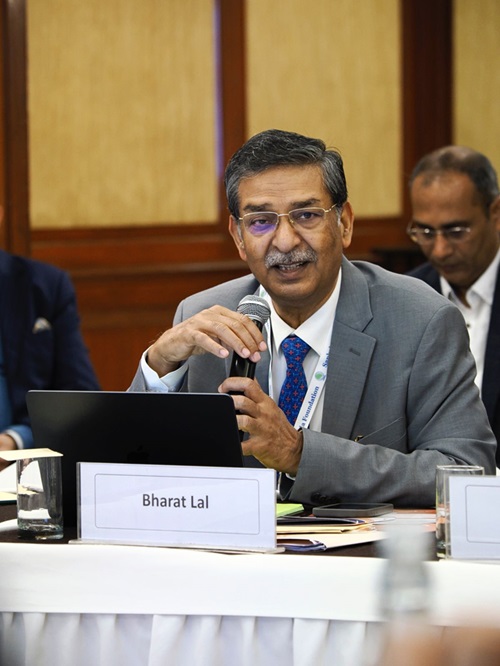
Ms. Monali P. Dhakate, Joint Secretary, Ministry of Social Justice & Empowerment, elaborated on various government schemes and policies aimed at improving the quality of life of older persons and the ageing population in India. She also highlighted the provisions of the Maintenance and Welfare of Parents and Senior Citizens Act, 2007, Atal Vayo Abhyuday Yojana (AVYAY), to name a few.
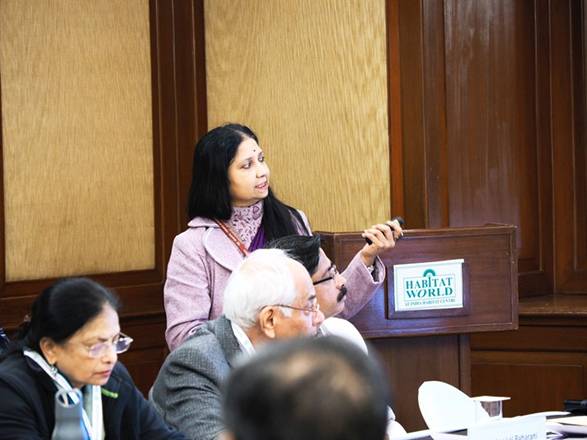
Shri Devendra Kumar Nim, Joint Secretary, NHRC, India highlighted the pressing issues elderly citizens face today and spoke about the ongoing initiatives by the National Human Rights Commission for elderly care.
Dr. Abha Jaiswal, Visiting Fellow, Sankala Foundation welcoming the participants said that India may be facing the concerns of a growing ageing population and therefore there is an urgent need for a comprehensive care mechanism for them. She underscored how addressing these needs could present significant opportunities for both economic growth and societal well-being.
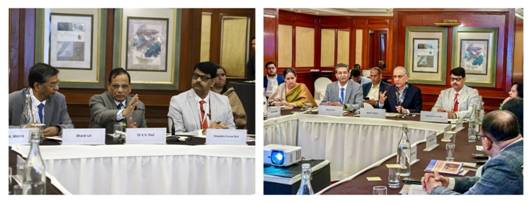
Chairing the first thematic session on the health and nutrition needs of the elderly, Dr. V. K. Paul, Member (Health), NITI Aayog, while sharing the concerns on the present and future challenges related to the well-being of the ageing population, commended the NHRC, India for its various initiatives in this regard. Shri Amit Yadav, Secretary, Ministry of Social Justice & Empowerment, chaired the second thematic session on economic security, social inclusion, and quality of life. Several domain experts and eminent people, representatives of NGOs, academia, researchers, starts up and medical fraternity attended the meet. After the speakers in each session, an open house was held to discuss the questions from the participants from various sectors including the organisations like WHO, UNFPA and TATA Trusts.
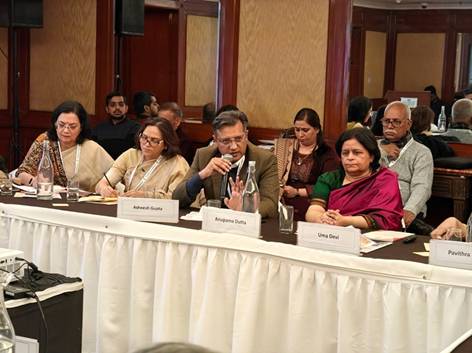
Some of the suggestions were as follows:
i.) Develop a comprehensive health and nutrition package for the elderly;
ii.) Create specialized services to address the needs of elderly women;
iii.) Promote home- and family-based care initiatives;
iv.) Strengthen existing government schemes and models for elderly care;
v.) Explore partnerships with the private sector to make elderly care affordable and sustainable;
vi.) Encourage greater health insurance coverage for the elderly;
vii.) Learn from global best practices to firm up India’s approach to dealing with elderly care;
viii.) Develop a comprehensive and integrated family medicine vertical in the healthcare sector;
ix.) Ensure participation of the elderly population in the society with dignity, good health, and independence;
x.) Have a segregated database on the elderly population for targeted intervention;
xi.) Explore the scope for involvement of local bodies, including municipalities, as well as both public and private stakeholders in ensuring the rights of the elderly;
xii.) Make sure that the voices of the elderly are heard with due attention for their well-being.
The participants included Dr. Manashvi Kumar, Joint Secretary, Ministry of Health & Family Welfare; Shri C. K. Mishra, Former Secretary, Ministry of Health & Family Welfare; Dr. K. Madan Gopal, Advisor, National Health Systems Resource Centre; Dr. Sanjay Wadhwa, Professor and Head, Department of Physical Medicine and Rehabilitation, AIIMS, New Delhi; Prof. Rama Baru, Professor, JNU; Prof (Dr.) Manohar Agnani, Azim Premji University, Bhopal; Dr. Tanuja Nesari, Former Director, All India Institute of Ayurveda; Shri Manohar Lal Baharani, All India Senior Citizen Forum; Shri Puneet Kumar, Additional Chief Secretary, Social Justice Department, Kerala; Ms. Uma Devi, Joint Director, Social Justice Department, Tamil Nadu; Ms. Kajari Biswas, Senior Director, Ministry of External Affairs; Ms. Anupama Dutta, Helpage India; Ms. Pavithra Reddy, COO, Vayah Vikas; Shri Piyush Kumar, Founder, Khyaal App; Shri Asheesh Gupta, Co-founder, Samarth Elderly care, and Dr. G.P. Bhagat, Founder, SHEOWS, Shri K. Srinath Reddy, Honorary Distinguished Professor, Public Health Foundation of India, Ms. Amrita Kansal, Public Health Specialist, Healthy Ageing Vertical, WHO South East Asia Region and Dr. Manjari Chaturvedi, CEO, Healthy Aging India, among others.
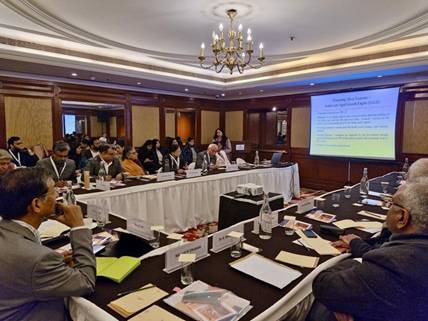
This meet was the follow up to the national conference held on 18th October 2024 wherein various challenges faced by elderly were discussed. This discussion was focused on finding out solutions to these challenges. NHRC, India works with various stakeholders including various governments, both centre and states and their parastatal organisations, NGOs, human rights defenders and researchers.